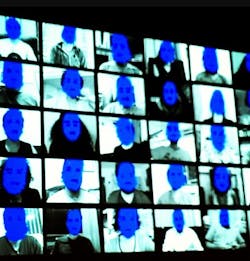As reported on FedScoop, the Department of Homeland Security has announced that after the success of the pilot program at Washington Dulles International Airport last year, facial recognition technology will be featured in all U.S. airports.
The expansion of the program will begin later this month at the John F. Kennedy International Airport. The technology will be used to confirm the identity of travelers with electronic passports, which include a computer chip containing, among other data, a digital photo of the holder.
A privacy disclosure from the Department of Homeland Security stated “U.S. Customs and Border Protection is expanding the 1-to-1 Facial Comparison Project (previously called the ‘1:1 Facial Air Entry Pilot’) to operations in all U.S. airports of entry and expanding the in-scope population to first-time travelers from Visa Waiver Program countries. The use of facial comparison technology assists CBP Officers in determining whether an individual presenting a valid electronic passport is the individual pictured on the passport.”
According to the DHS, the program is meant to increase "CBP’s capacity to screen travelers entering the United States (U.S.), and to confirm the departure of non-U.S. citizens from U.S. airports." The technology uses the image stored in a traveler's e-passport and compares it to a picture taken at the checkpoint as they present their documents.
During the pilot project at Dulles the photos taken for comparison were retained for technical analysis of the software's efficacy. But the privacy assessment says that going forward, photos will not be stored if they do not result in an enforcement or administrative action.
As the 1:1 Facial Comparison Project continues to expand to more airports CBP will monitor the programs privacy compliance and if necessary, policies will be updated.

